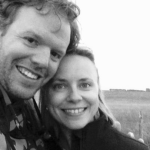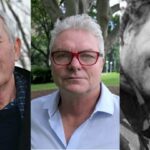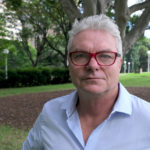Government Will Keep its Crimes a Secret, While Continuing to Prosecute Whistleblowers

Attorney general Mark Dreyfus’ decision to drop the Bernard Collaery prosecution on 7 July was praised, as the ACT barrister was facing multiple charges over allegedly exposing our nation having bugged the Timor-Leste cabinet offices in 2004 to gain unfair advantage in fossil fuel negotiations.
Civil liberties advocates, however, suggest that in announcing the move, Dreyfus further signalled to the politicians and public servants involved in the “wholly-immoral” surveillance operation, in what was the newest and poorest nation on Earth, are free from any reproach.
“The long-standing practice of government has been to neither confirm nor deny claims made about intelligence matters. And I will strictly adhere to that practice,” Dreyfus told reporters during the Collaery presser, which means whether the Dili bugging operation occurred is to be left unresolved.
In dropping the Collaery case, Dreyfus exercised the federal chief lawmaker’s power to end Commonwealth prosecutions, under section 71 of the Judiciary Act 1903 (Cth). Yet, in doing so, the AG has further determined not to discontinue two other high-profile whistleblower prosecutions.
These cases against former ADF lawyer David McBride and ex-ATO officer Richard Boyle continue and they’re being compounded by the decision to prosecute under public interest disclosure laws that are acknowledged a failure and are slated for overhaul.
Shooting the messengers
“Lawyer Bernard Collaery is off the hook, made free and uncaught by new Labor government attorney general Mark Dreyfus,” Civil Liberties Australia (CLA) chief executive Bill Rowlings told Sydney Criminal Lawyers.
“The septuagenarian lawyer Collaery was in legal limbo worm-like status for five years, after an unfathomable charging decision of a former AG known for casting his fishing lines to the far-right,” he continued.
Then attorney general Christian Porter launched the prosecutions against Collaery and alleged co-conspirator Witness K in mid-2018, following former AG George Brandis determining not to pursue them in 2013, after he’d approved ASIO raids upon both men’s Canberra premises.
K was the ASIS agent in charge of the bugging. He told Collaery of it in 2008, after being advised to consult the ASIS-approved lawyer. As Rowlings puts it, the “surveillance happened, it is said, in 2004 to learn the Timor-Leste negotiating position, as it was being thrashed out by its ministers and staff”.
“The ongoing question for Australia is who authorised Witness K and crew to bug, which was 100 percent amoral, if not strictly illegal according to Australian law?” explained the civil liberties advocate.
Unresolved allegations
The alleged bugging of the Timor-Leste government was carried out, whilst Alexander Downer was the Howard government’s foreign affairs minister. And the intelligence gathered benefited Australian petroleum company Woodside, who Downer went on to work for post-parliament.
Rowlings points to a number of questions that are now left unresolved as Dreyfus has determined to maintain the neither deny nor confirm stance. And these are matters of concern to the strong long-term Australian supporters of Timor-Leste, who continue to want answers.
These matters, which have “never been explored in a public inquiry”, include whether Foreign Affairs or the AG’s department authorised the surveillance operation, was the “potentially reputation-shattering act” approved at the top, as well as whom those top-level pollies might be.
“By dropping the Collaery prosecution,” Rowlings underscored, “AG Mark Dreyfus has ruled a line under the need for further probing. We’ll never know how high was he who gave the tick.”
Drop the political prosecutions
Whilst the persecution of Collaery has been laid to rest, the Commonwealth continues to pursue former military lawyer David McBride for having exposed Australian war crimes in Afghanistan, along with Richard Boyle, who blew the whistle on a dodgy tax office garnishee practice.
Boyle’s case has just gone before the Adelaide District Court. The former ATO officer is facing 24 charges over exposing the practice, which resulted in it being brought to an end. And now, as in both the Collaery and McBride cases, the Commonwealth prosecutor is seeking to suppress key evidence.
“AG Dreyfus should find a way to exonerate both men,” Rowlings declared, adding that all three, including Collaery, “deserve medals from Australians, not prosecution by the Australian government”.
“If you want to know how corrupted the government position is,” he went on, “just ask yourself: why is the government in all cases repeatedly asking the courts for suppression orders – even in the Boyle tax case – so that Australians can’t know the truth?”
Failed protections
In going public with the details of the corruption they observed, both Boyle and McBride followed the whistleblowing process set out in the Public Interest Disclosure Act 2013 (Cth), and it’s the protections afforded individuals in their positions within the Act, which have failed both men so far.
During a short stint in the role of attorney general in 2013, it was Dreyfus who drafted and oversaw the passing of the PID Act. A subsequent required review of these laws resulted in the 2016 Moss report, which made 33 recommendations for improvement, which were ignored by the Coalition.
Dreyfus indicated last October that if Labor were to take out this year’s election, then he would be overhauling the PID laws, of which he maintains he knew would need amending on enactment.
However, now it seems that these laws, which are not fit for purpose, are acceptable to apply in the pursuit of McBride and Boyle.
Eroding open justice
According to Rowlings, along with improved PID laws, what’s now needed are two inquiries. The first should investigate why those officials privy to the Timor-Leste bugging, the Afghan war crimes and the suspect ATO operations, didn’t reveal these official affronts to “what we stand for as a nation”.
“The second inquiry should investigate the courts, and how they have allowed the Witness J, Witness K, Collaery, McBride and Boyle cases to be heard behind closed doors, without the light of public scrutiny to safeguard our legal system,” he added.
The prosecution of Witness J took place in complete secrecy in 2018. The former intelligence officer was tried, convicted and sentenced in the ACT Supreme Court without the public knowing, and the transcript of proceedings was then withheld.
“Witness J was charged on the sly, tried in a closed court, and gaoled incognito among sex offenders, all in total secrecy” Rowling said in conclusion, “not even the relevant AG and the minister responsible for the gaol he was in knew about his case.”







